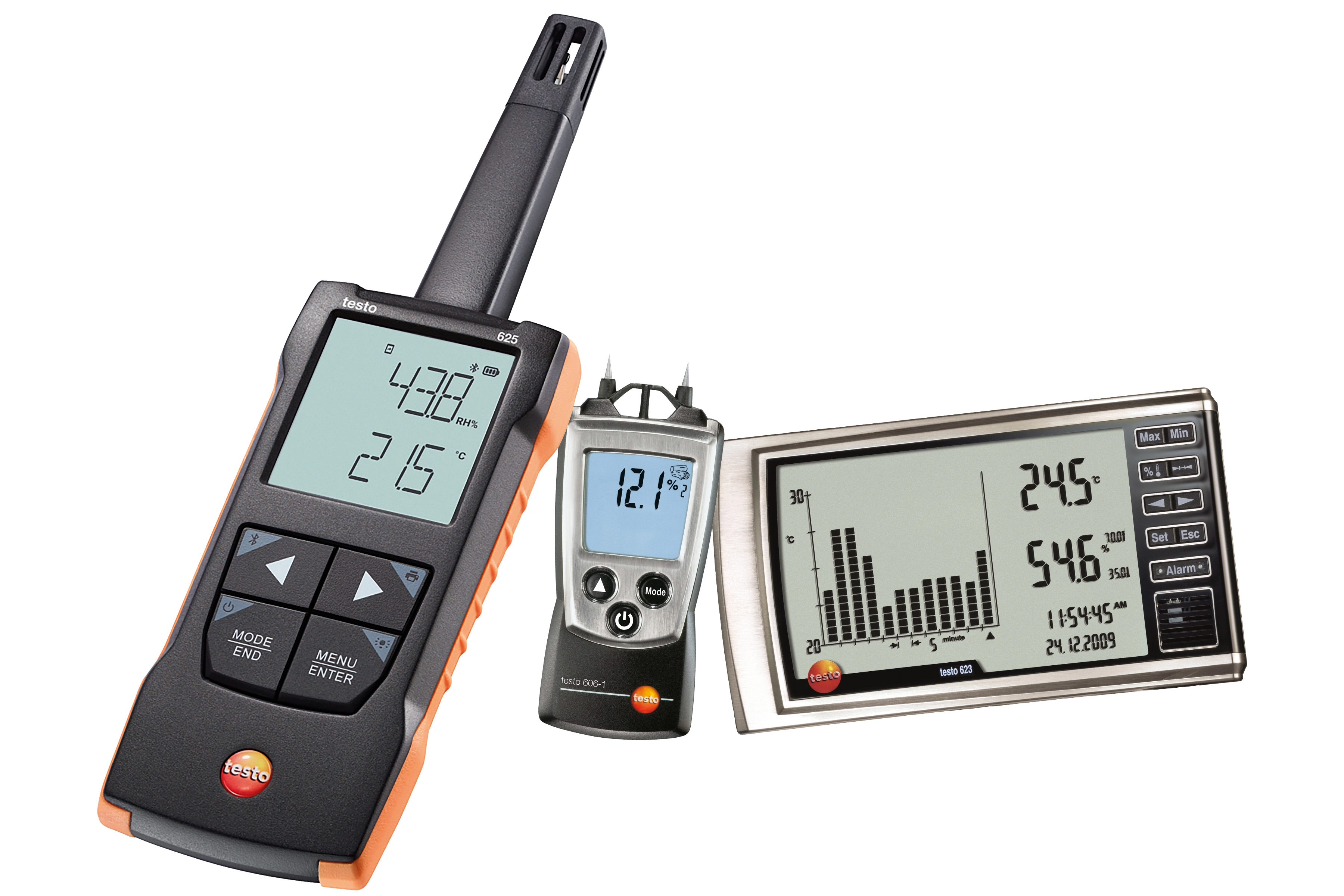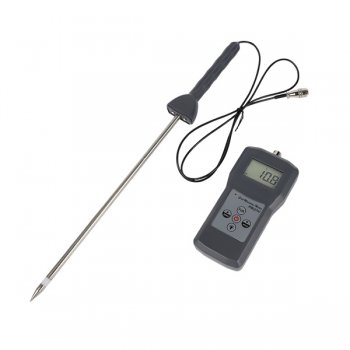The Ultimate Overview to Moisture Meters: A Comprehensive Review and How They Can Save You Money
In the realm of building upkeep, construction, and numerous markets, the importance of accurately determining dampness degrees can not be overstated. Dampness meters serve as vital tools in spotting and keeping an eye on moisture content in materials, assisting in protecting against pricey problems and ensuring the top quality of items. Recognizing the subtleties of various kinds of wetness meters, their applications, and the prospective cost-saving advantages they offer can be a game-changer for organizations and experts alike. Finding exactly how these tools can not only enhance processes however additionally contribute to financial savings is a trip worth starting.
Kinds Of Wetness Meters
Numerous kinds of dampness meters are offered for different applications in numerous sectors. One usual type is the pin-type wetness meter, which gauges the electric resistance in between two pins inserted into a product. This type appropriates for wood, drywall, and various other structure materials. Pinless dampness meters, on the other hand, use electro-magnetic sensor plates to check a bigger location without creating damages to the material's surface. Moisture Meter. These meters are excellent for swiftly evaluating moisture degrees in large areas such as walls and floors.

Moreover, there are also specialty moisture meters made for specific materials like grain, dirt, or hay. These meters offer accurate dampness readings customized to the special residential properties of the material being tested. Infrared wetness meters measure the thermal buildings of a product to determine its wetness material non-invasively, making them valuable for applications where pin or pinless meters may not appropriate. Understanding the different sorts of dampness meters available can aid markets choose the most proper tool for their details moisture measurement demands.

Advantages of Making Use Of Moisture Meters
Moisture meters offer very useful advantages in precisely keeping an eye on and assessing moisture degrees in varied products and environments (Moisture Meter). One of the primary benefits of using moisture meters is the avoidance of potential damage triggered by excess wetness. By spotting and addressing high moisture levels at an early stage, wetness meters help to avoid mold development, rot, and structural damage in buildings, conserving both time and money on repair services. In addition, dampness meters aid in making sure the quality of materials during construction or production processes. By accurately gauging moisture material, these tools assist preserve the integrity of timber, drywall, concrete, and other materials, lowering the danger of failings or problems.
Furthermore, utilizing dampness meters can lead to increased power effectiveness. In agricultural settings, dampness meters play an essential function in maximizing crop returns by making it possible for farmers to monitor dirt wetness degrees and make informed watering choices.
Just How to Pick the Right Moisture Meter
When picking a dampness meter, it's essential to guarantee that the meter is appropriate for the certain product you will certainly be testing. Different products have differing electric residential or commercial properties that can affect dampness readings, so choosing a meter developed for your product is essential for precise results. By meticulously assessing these aspects, you can pick a wetness meter that meets your demands and supplies accurate wetness dimensions for your projects.
Proper Strategies for Wetness Meter Usage

Price Cost Savings Via Wetness Meter Applications
How can the critical use of wetness meters lead to significant expense savings across various markets? In the farming sector, dampness meters aid in figuring out the optimum time for harvesting crops, avoiding excess or over-drying moisture that can affect the final product's top quality.
Likewise, in building, wetness meters help avoid pricey damages by finding wetness degrees in building materials, such as wood or concrete, which can lead to structural issues otherwise attended to immediately. By identifying problem locations beforehand, contractors can take restorative actions to avoid comprehensive repair services or replacements, ultimately conserving time and money.
Furthermore, in the food processing sector, dampness meters are important for checking item high quality and making certain compliance with safety and security laws. By accurately measuring dampness web content in foodstuff, manufacturers can prevent putridity, preserve quality, and decrease waste, leading to substantial expense financial savings. Generally, check the calculated application of wetness meters is a valuable investment that can cause considerable cost reductions and boosted effectiveness throughout numerous sectors.
Conclusion
In verdict, wetness meters are useful devices for determining and spotting dampness degrees in different products. By utilizing the ideal dampness meter and following appropriate techniques, users can properly avoid costly problems triggered by excess dampness. Buying a high quality moisture meter can cause significant expense financial savings in the future by identifying prospective issues early on and enabling prompt removal. Eventually, moisture meters are essential tools for keeping the honesty and longevity of structures and products.
Wetness meters offer as important devices in detecting and keeping an eye on moisture material in products, aiding in protecting against pricey damages and making sure the high quality of products. Infrared wetness meters measure the thermal buildings of a material to determine its wetness material non-invasively, making them helpful for applications where pin look at this now or pinless meters may not be suitable.Wetness meters use invaluable advantages in precisely monitoring and evaluating moisture degrees in diverse materials and environments. In farming settings, moisture meters play an important duty in optimizing plant returns by allowing farmers to check dirt wetness levels and make informed watering decisions.In verdict, wetness meters are beneficial tools for measuring and detecting dampness degrees in numerous products.